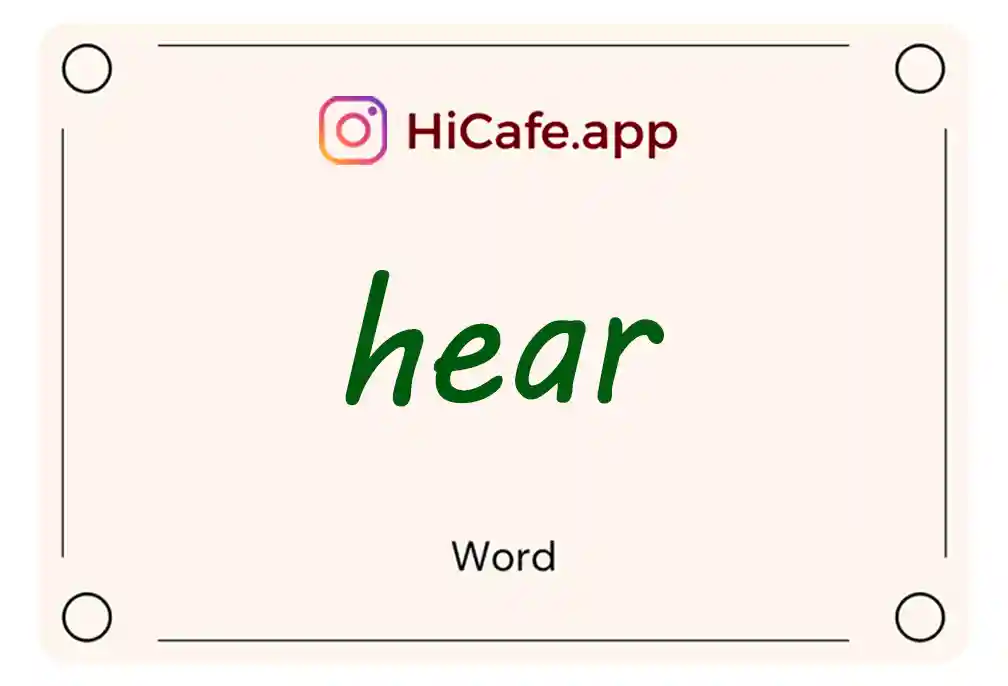
Word of the Day: Hear
To hear is to receive information or sound through one’s ears.
| simple | past | past participle |
|---|---|---|
|
hear
|
heard
|
heard
|
- Can you hear that? It sounds like there’s a problem with my car.
- I can’t hear you. Can you speak up?
- It’s hard to hear what’s going on from so far away. We’ll have to get closer in order to listen.
- Karl can’t hear very well. He’s losing his hearing. (hearing: your ability to hear)
- I’m sick of hearing that dog bark next door. (In this sentence, “hearing” is a gerund.)
This verb is often used when information is passed from one person to another, whether the information is in print or in the form of sound.
- I hear you’re moving to New York
- Did you hear about Tom and Jennifer’s divorce?
- What have you heard about our new supervisor?
- Everyone has heard about the accident.
- I’m sorry to hear about your mother. She was a nice woman. (This is what a person might say to a grieving family member.)
There’s a difference between the words “hear” and “listen.” The word “iisten” is more active and is used when a person is really concentrating on the sound. The word “hear” can be used for both active and passive situations in which sound enters the ear.
- Can you hear that? No? Listen.
- Listen to the teacher when she speaks.
- I didn’t hear the storm last night. I was sound asleep.
The word “hearing” is a noun:
- My grandmother is losing her hearing. (She’s losing her ability to hear.)
- There will be a hearing later today regarding the issue of water conservation. (hearing: a formal gathering of government officials who listen to facts and make decisions based on what they hear.)
Essential English Dictionary
Visit the Popular English Words Beginning with H page to see the list of all words starting with letter H. For seeing the HiCafe dictionary, visit the Popular English Words with Meaning page.


